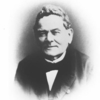Macht, machinaties en musea. Jan van der Hoeven, Hermann Schlegel en hun strijd om het Rijksmuseum van natuurlijke historie te Leiden
DOI:
https://doi.org/10.18352/bmgn-lchr.6203Keywords:
MuseumsAbstract
Might, machinations and museums. Jan van der Hoeven, Hermann Schlegel and their battle over the National Museum for Natural History in Leiden
Museums had a central place in nineteenth-century natural history. Aside from being important places for carrying out research into nature, they were also powerful vehicles for transmitting and communicating scientific knowledge. That is why, in the nineteenth century, natural history museums were frequently battlegrounds for rival scientists. Often, clashes over scientific matters were at the same time conflicts about power and space. After all, the naturalist who could get control over a museum’s collection and decide how the specimens should be classified and exhibited ultimately had the power to dictate which scientific knowledge was communicated; which story was told by a collection of specimens. This article is about the power struggle over the directorate of the National Museum of Natural History in Leiden that broke out between Jan van der Hoeven, Professor of Natural History and Comparative Anatomy at Leiden and Herman Schlegel, the museum’s chief curator. Both were rooted in very different natural historical traditions and had completely different views on the role of the museum and how the collection should be arranged and exhibited. In this article, we follow the two scientists in their attempts to gain support for their nominations. In this way, we also get a picture of nineteenth century Dutch political culture and the role scientists could play in it.
Downloads

Downloads
Published
Issue
Section
License
Authors who publish with this journal agree to the following terms:
a) Authors retain copyright and grant the journal right of first publication with the work simultaneously licensed under a Creative Commons Attribution 4.0 International (CC BY 4.0) that allows others to share the work with an acknowledgement of the work's authorship and initial publication in this journal.
b) Authors are able to enter into separate, additional contractual arrangements for the non-exclusive distribution of the journal's published version of the work (e.g., post it to an institutional repository or publish it in a book), with an acknowledgement of its initial publication in this journal.
c) Authors are permitted to post their work online (e.g., in institutional repositories or on their website) prior to and during the submission process.
Authors are explicitly encouraged to deposit their published article in their institutional repository.








